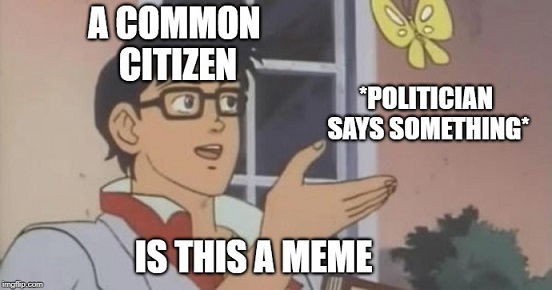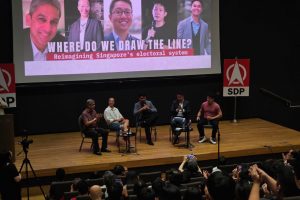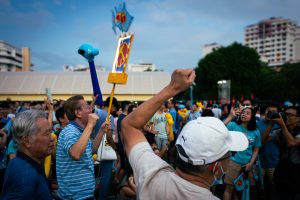Top image: Author’s own attempt at political meme-making on imgflip.com
It’s true, I love laughing at politicians.
If you’ve lived through even one General Election in Singapore, you’ll find that I’m no deviant exception—the numerous gaffes our politicians (or politician-wannabes) make would have left you guffawing at some point or other.
Yet they’re not just humorous flashpoints for the day. Instead, political gaffes are often blessed with a peculiar longevity of their own, becoming deeply embedded within popular culture. Years after the initial blunder has occurred, they continue to be dredged up from the recesses of memory, weaponised as easy-made pot shots, turned into lampooning memes.
Some political figures make things a little too easy—over in the supposed land of the free, Donald Trump’s accidental act of wordsmithing, has immortalised ‘covfefe’ as one of the most serendipitous and banal presidential blunders ever.
Back on our sunny island set in the sea, our esteemed ministers and statesmen—undoubtedly masters of public relations—would certainly never make such a ridiculous Trump-esque blunder.
But every once in a while, the shiny, impeccable veneer of local politics cracks just enough for us to get a glimpse of the unfiltered humanity behind our political figures.
Just ask anyone on the street how Prime Minister Lee Hsien Loong likes his mee siam.

If you don’t know what I’m referencing, you’re either too young to have heard the iconic phrase uttered on live national television during his 2006 National Day Rally speech, or probably just apathetic enough to have not noticed.
The 2006 General Elections saw a prominent controversy arise over James Gomez, then Worker’s Party politician. Falsely accusing the Elections Department of misplacing his election papers—perhaps a genuine mistake— he was subsequently arrested for alleged ‘criminal intimidation’. While Gomez was not charged in the end, the saga caught international attention, especially for how it appeared that the state was unduly haranguing him.
Addressing a satirical podcast that Mr Brown made about the incident that reimagined Gomez as Jeff Lopez, an office worker out for lunch who mistakenly accuses the bak chor mee stall uncle of messing up his order, our PM uttered the infamous, “You put out a funny podcast, you talk about bak chor mee, I will say mee siam mai hum.”
Just for the record, mee siam patently does not come with ‘hum’.
This unique mix of misrepresenting Singaporean food culture and the PM’s perceived detachment from the ground in Singapore ensured ‘mee siam mai hum’s merciless reference and parody in internet culture in the late 2000s.
Curiously, the official transcript of the speech bears no mentions of bak chor mee, mee siam, or ‘hum’.
In a strange stroke of irony, ‘mee siam mai hum’ may very well have been the result of our PM improvising on the fly; veering off-script to be cool, only to have it backfire.
Of course, given that the original context of the meme has largely faded into obscurity, you would think that it would have died off by now, but what is dead may never die.
During and since the last General Election of 2015, other gaffes from our politicians have jostled to attain the infamy of ‘mee siam mai hum’.
For one, Sim Ann seemed to have had a gleeful time chastising Chee Soon Juan for his “chut pattern” theatrics during her rally in the 2015 General Elections. Taken to be an overt attempt at assassinating Chee Soon Juan’s character, she was widely panned for displaying open delight in belittling Chee Soon Juan.

Khaw Boon Wan, on the other hand, has an affinity for gaffes like no other. In his various appointments over the years, he has likened staying in HDB flats to national service, insinuated the opposition should commit hara-kiri for the alleged mismanagement of AHPETC, and even called for “reporters to run the train system” in response to less than favourable media coverage of transport issues.
His comments seem to stem variously from an earnestness in his beliefs and aspirations for pushing for the people’s best, but they become abrasive when considering the extremes of analogy and derision he employs.
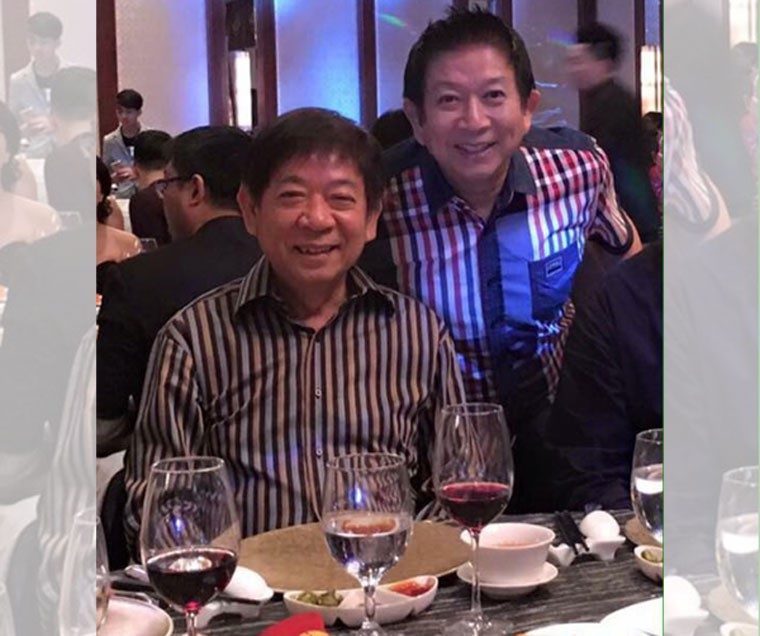
Certainly no one should commit suicide for bureaucratic mismanagement, and reporters are best left to critique transport systems in peace.
On a lighter note, Josephine Teo’s now oft-quoted “you don’t need much space to have sex” has come to be seen as an extension of the state’s predisposition to ‘parent’ its citizenry.
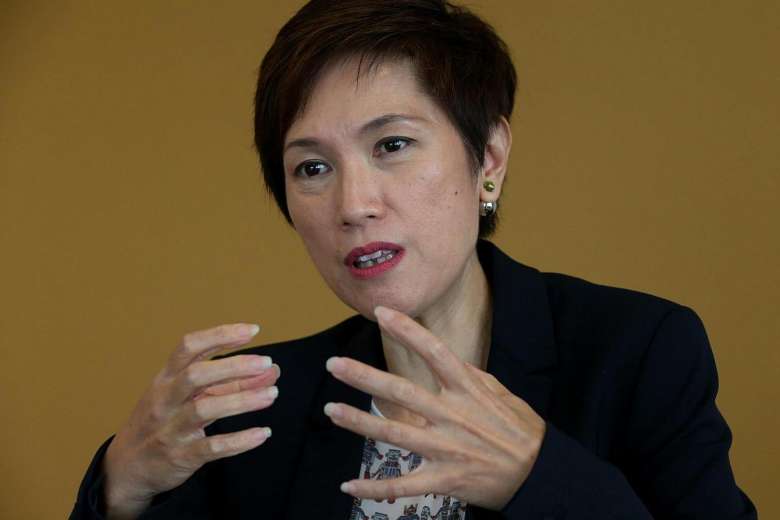
Let’s not forget either about Tan Chuan-Jin’s thoughts about the elderly collecting cardboard as a hobby rather than as a living, or more recently, his murderous intentions for ‘sacred cows’.
The former embarrassed him for the demonstration of his apparent lack of understanding of on-the-ground issues. The latter could be seen as an unnecessary attempt at humour.
On the surface, it appears common-sensical that these moments would be turned into memes that endure—they’re hilarious, catchy, and shamelessly irreverent.
However, political meme-making in Singapore may hold deeper significance beyond a quick laugh for the everyman. It allows us to humiliate our politicians in an acceptable manner that doesn’t conceivably incur the wrath of the ‘powers-that-be’. After all, it’s rather tricky to launch a defamation suit against someone reproducing something you’ve obviously said yourself.
The upside of humiliation is that it humanises these political figures, removing them from their normally untouchable high positions of power in society, and situates them in the vulgar gutter together with the rest of us. If political figures play it off well, the situation may even be in their favour, making them more relatable to the electorate à la ‘mee siam mai hum’.
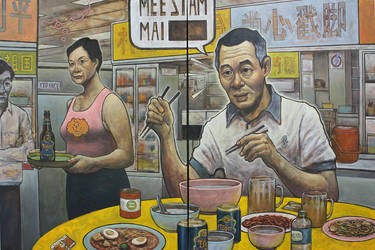
But there could be a subtler reason for why we pounce on every opportunity to create a meme: frustration.
Given that effectively, Singapore’s been a one-party dominated state since our independence, the electorate has only been able to experience the rule of the People’s Action Party (PAP). Not surprising at all that we would want more.
But barring the Worker’s Party that has demonstrated its worthiness through its legitimate win of the electorate’s mandate in the 2015 General Elections, the remainder of Singapore’s opposition is decidedly dismal.
Independent opposition candidate Han Hui Hui’s attempt at public office in 2015 only led to her getting heckled at her own rally and losing her electoral deposit.
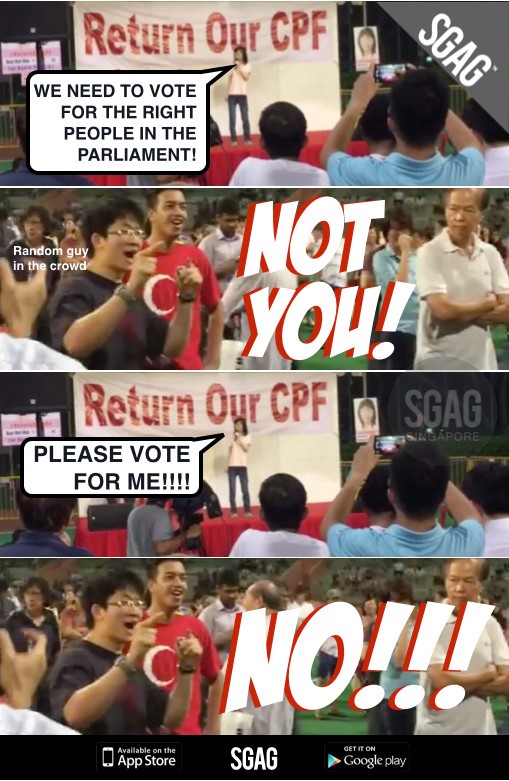
As for Roy Ngerng’s ‘heart truths’, the majority sentiment doesn’t quite take them to heart; his attempt at public office as part of the Reform Party’s bid for the Ang Mo Kio Group Representation Constituency in 2015 failed as well.
For a truly bizarre offering from the opposition, look no further than National Solidarity Party’s Choong Hon Heng.
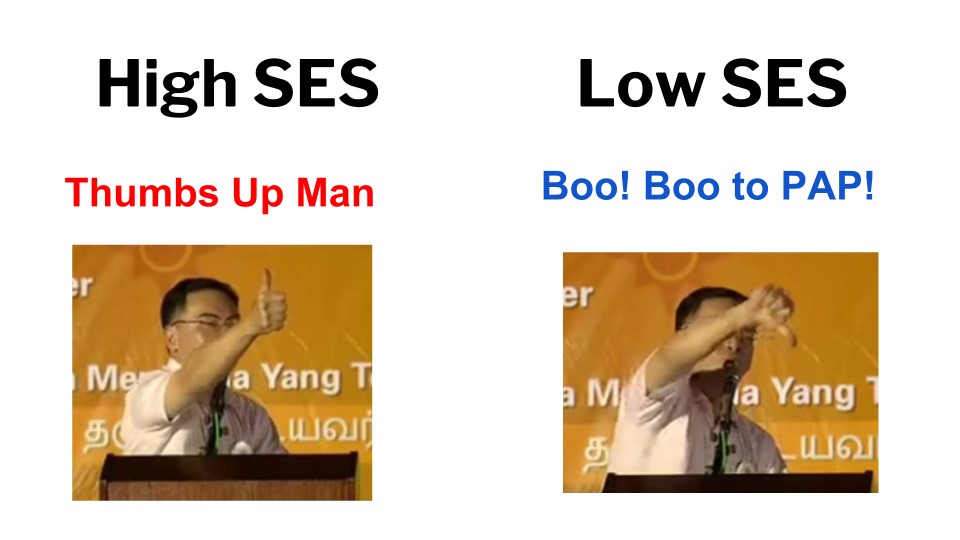
With an opposition that presents as such, the PAP seems like the best that the electorate can have at the moment, although it’s evidently not what everyone thinks.
While the PAP laid claim to 69.86% of the popular vote in the 2015 General Elections, what about the remaining 30.14%?
Indeed, when the best that we can have demonstrates perceived cracks in their perfection, we get riled up over their flaws, and insistently harp on them because they’re all we have at the moment.
We seize upon these cracks with gusto and glee to vent frustration with the lack of political diversity.
Yet, observe as well, that the long-lived memes of Singapore’s politicians that dominate discourse and attain virality tend to focus on politicians in power. Memes of opposition politicians, on the other hand, tend to be short-lived and sporadic, perhaps reflective of their participation in politics.
Naturally, memes remain relevant only as long as the subjects they lampoon. The political careers of the opposition seem like mayflies in comparison with those of the incumbent in power that can span decades. Their memes ostensibly follow their trajectories.
(Who actually remembers The Singing Politician?)
Or maybe it’s simply more fun and delicious to see those in power caught squirming in the spotlight—satisfaction comes from punching up, not down.
The next General Election has to held by 15th January 2021; it would prudent before then, to reflect on why we make memes out of our politicians, even if they do make memes out of themselves.
The ability to repackage complex ideas into a simple digestible viral packet imbues memes with a potent power of their own—one that defies censorship and demands to be heard.
Considering how ubiquitous meme-making has become in tandem with the supremacy of social media, memes may have already superseded thoughtful critique agitating political thought. The advent of younger generations of voters that speak social media could thus magnify the impact of memes on political engagement to an unprecedented degree.
Powerful as they are, political memes are ultimately engineered for humiliation with razor-sharp focus. Peripheral contexts and nuances—important as they are to achieve a holistic understanding of hot-button topics and perspectives—are swept aside for a punchy, short, schadenfreude-driven delivery.
To mount a logical defence against memes is thus highly improbable, given that that part of their charm is to blend the absurd and the reality. This is where the potential for maximum injury to politicians lay. There is nothing more damaging than someone laughing at you over something out of your control.
For politicians, meme-making could very well make or break public opinion, and they would do well to tread carefully with their gaffes in the years to come.
For the rest of us, we should be more afraid of what it means to have memes supersede critical social commentary in the power to dictate and refocus discourse or risk them becoming thought-stoppers.
Let’s be honest, does anyone think of James Gomez when they hear ‘mee siam mai hum’?
That’s what I thought.
Think mee siam should come with ‘hum’? Sick of people ‘politisai-sing’ memes? Tell us what you think at community@ricemedia.co.

